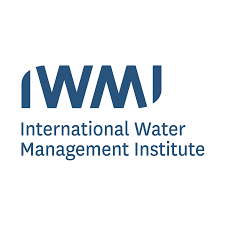PESHAWAR, Mar 07 (APP):The International Water Management Institute (IWMI) P
akistan on Wednesday organized a national consultation workshop titled “Updates on Current Status of Water Accou
nting in Four Provinces of P
akistan and Developing National Level Water Accou
nting Guidelines”.
The workshop was organized under the UK Aid-funded Water Resource Accountability in P
akistan (WRAP) Programme, and aimed to support the implementation of the National Water Policy (NWP).
Director for Water, Food, and Ecosystems and Team Leader for the WRAP Programme Component 1: CRS-IWaG, Dr Mohsin Hafeez briefed the meeting on the provincial consultations for the Water Accou
nting Journey.
He informed that IWMI P
akistan had initiated work on Water Accou
nting and Water Resources Assessment at the federal level under the programme.
Furthermore, he said that developing a National Water Accou
nting Framework would enable the government to make informed decisions and resolve disputes between the provinces of Punjab, Sindh, KP, and Balochistan. He added that the authorities have information on surface
water for the Indus Basin, but ground
water data is unavailable, which hinders accurate decision-making for
water management.
While giving an overview of the WRAP Programme Component 1, Dr Hafeez said that IWMI P
akistan had developed a
water accou
nting framework at the federal level in Punjab’s Okara district.
In addition, Eddy Covariance flux towers were installed in Okara, Chakwal, Rahim Yar Khan, and Sheikhupura, which will provide data on
water and carbon emissions in agriculture and contribute to agroecological zoning.
Dr Hafeez also mentioned that IWMI P
akistan organized four consultation workshops at the provincial level.
The workshops brought together all key stakeholders, including federal and provincial government officials, policymakers,
water experts, and practitioners from across the country, to discuss and deliberate on the im
portance of Water Accou
nting and its implications for sustainable
water management in P
akistan, he informed.
Speaking on the occasion chief guest and Federal Secretary Ministry of Water Resources, Syed Ali Murtaza, shared insightful perspectives on the government’s commitment to addressing the complex interplay of water, food, and climate challenges.
He expressed concern over the lack of a
water framework in P
akistan for 70 years and highlighted the ground
water depletion situation in Multan and Lahore.
Chairman Federal Flood Commission (MoWR), Engr. Ahmad Kamal presented an overview of challenges and opportunities in the Indus Basin regarding
water accou
nting and management.
He said that P
akistan is the eighth most vulnerable country to climate change, and over the last 30 years, they have been ranked amongst the top 10 climate-vulnerable countries. There is no ground
water regulatory framework, and anyone can abstract as much ground
water as they want, leading to fast depletion of ground
water sources across P
akistan, he added.
Participants were divided into five groups belonging to Punjab, KPK, Sindh, and Baluchistan which discussed the Development of National Water Accou
nting Guidelines and the way forward.
